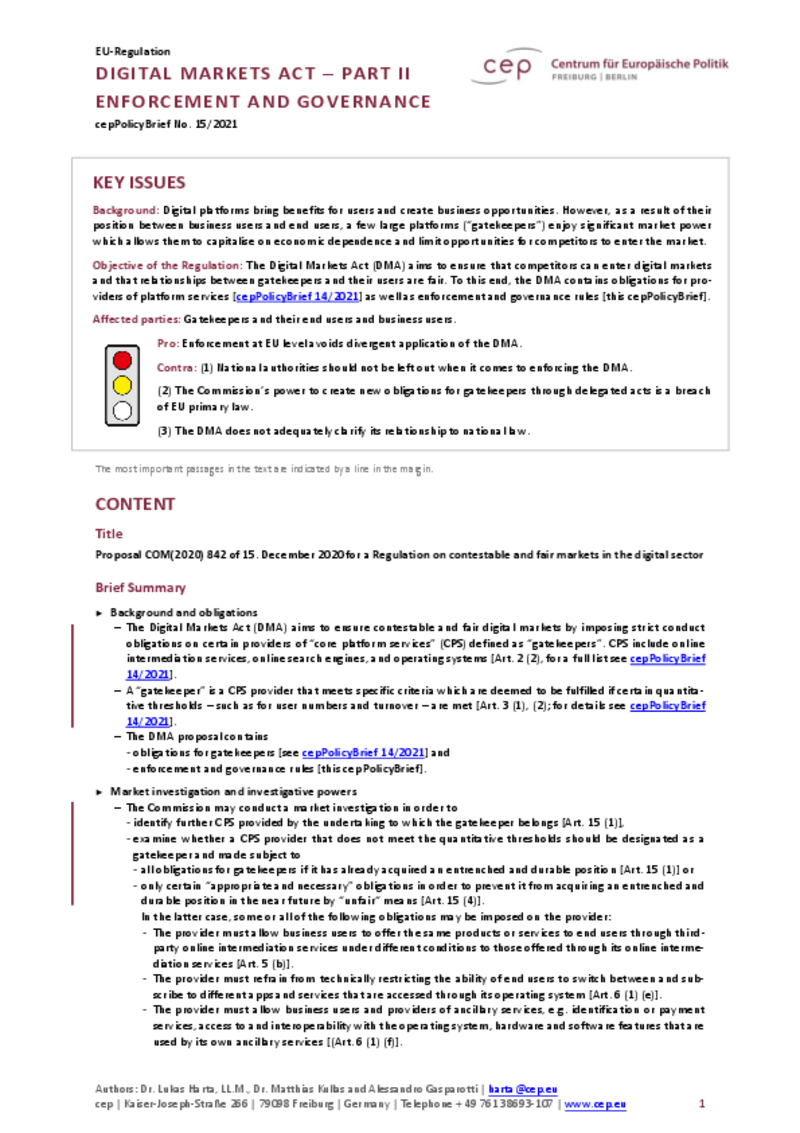
Digital Economy
Digital Markets Act - Part II: Enforcement and Governance (cepPolicyBrief COM2020_842)
cepPolicyBrief
The Centrum für Europäische Politik (cep) has examined the Brussels law in two in-depth analyses. The main criticism is that "the Commission's planned power to create new obligations for gatekeepers through delegated acts violates EU primary law," says cep lawyer Lukas Harta, who wrote the analysis with cep economists Matthias Kullas and Alessandro Gasparotti.
"The Commission's blanket right to conduct on-site inspections without specifying conditions also violates Article 52 (1) of the Charter of Fundamental Rights," Harta warns. In addition, the DMA does not sufficiently clarify its relationship to national law. According to Harta, the fact that enforcement of the DMA is to lie with the Commission does avoid distortions of competition that could arise from different interpretations of the DMA. However, the experienced national authorities should be involved to ensure swift enforcement if only one member state is affected.
The major Internet groups are already resisting the Commission's plans for new rules in the digital business. Apple, for example, complains that the DMA in its current form endangers the security and data protection of iPhone users. Facebook warns of overly strict requirements that threaten to stifle innovation.
Download PDF
| Digital Markets Act - Part II Enforcement and Governance (cepPolicyBrief COM2020_842) (publ. 07.27.2021) | 436 KB | Download | |
 | |||



